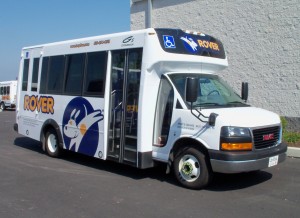I have been open in my concerns related to political committee people who continue to serve in that capacity once elected to the Board of Supervisors. Currently Tredyffrin Township has three of the seven supervisors (Michelle Kichline, Evelyn Richter and Kristen Mayock) also serving as committeewoman for the Tredyffrin Township Republican Committee (TTRC).
Once elected, township supervisors are elected to serve all the residents, regardless of their political affiliations. But by remaining in a political party committee position and serving as an elected official there could exist a conflict of interest — if only in perception. This is certainly not intended as an indictment on the performance of Kichline, Mayock and Richter as supervisors; I have spoken personally to Michelle and Kristen, voicing my concern over this issue.
Michele has served as a supervisor and now as chair of the Board of Supervisors, without any obvious bias towards the political party for which she is a committeewoman. However, as previously stated on Community Matters, our neighbor Radnor Township takes away the possibility of conflict (perceived or real) — their Home Rule Charter prohibits public elected officials from serving as political party committee people.
The following editorial in the Main Line Suburban by Jerry Kinkead, a former Tredyffrin Township Republican Committeewoman, supports my position and offers personal insight into what could (and has happened) when the lines of separation between a political committee person and elected official blur. Kinkead not only believes that the current arrangement in Tredyffrin Township is a conflict of interest but is calling for a change in Tredyffrin’s Home Rule Charter.
Conflict of interest
To the Editor:
Thanks to a local Tredyffrin township blog called Community Matters, I have recently learned that three members of the Tredyffrin Township Board of Supervisors (Kichline, Richter and Mayock) are also elected members of the Tredyffrin Township Republican Committee. I believe this to be a fundamental conflict of interest, which could lead to the blurring of allegiance. I propose that Tredyffrin’s Home Rule Charter be amended to disallow this practice.
Community Matters pointed out that Tredyffrin Township’s Home Rule Charter does not address this issue, but that in the Radnor Township Home Rule Charter there is a prohibition against being an elected political official while, at the same time, holding an elected governmental position, as well as a provision for dismissal or termination of appointment should this prohibition be violated.
In Chester County, during the decade of the 1970s, we had a situation whereby the chairman of the countywide Republican Party was also chairman of the Chester County commissioners, which was seen as a conflict of interest by some. As a result, a group known as the Independent Republicans set out to make changes in the local Republican Party, with one of their most pressing goals being the separation of those two jobs. There was a protracted political struggle over this issue, though the County Republican Committee eventually saw the wisdom of the goal, after the indictment of the county chairman. Subsequently, the local Republican Party bylaws were changed to disallow the holding of those two influential offices by the same person.
In the 1970s case in Chester County, the county commissioner was found to be giving out contracts to people who supported the party financially. He did not follow the rules for bidding contracts and was eventually indicted and sentenced for breaking the law.
In my view, the problem with holding a political position and a governmental position at the same time is that the lines can become blurred, and measures may be supported by a government official that are meant to advance the interests of the political party. At a local level, there are decisions to be made about appointments, issuance of building permits, support of local institutions and the like, which should be made by people whose guiding interest is the government they are a part of, and not the party that they also serve.
I suggest that the three Tredyffrin supervisors who now hold joint offices should resign their positions in the local Republican committee, and I urge the Board of Supervisors to take a look at how to change the Tredyffrin Home Rule Charter to eliminate this clear conflict of interest.
With respect,
JERRY KINKEAD
Tredyffrin resident
Former Tredyffrin Republican Committeewoman
Wayne, PA
